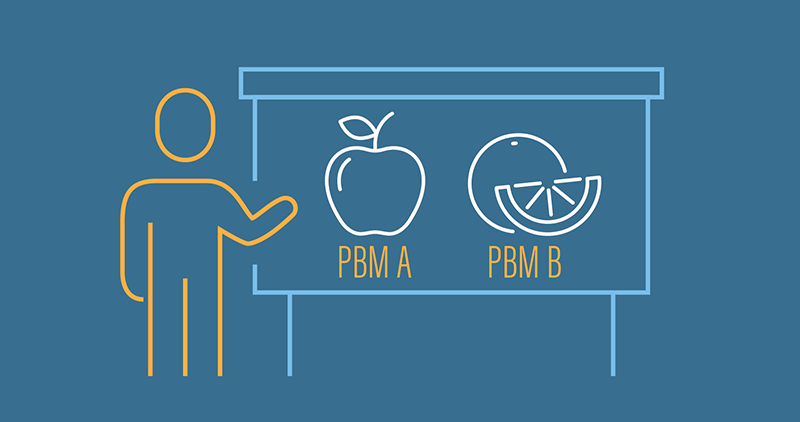There's ONE thing you aren't evaluating your PBM on that you should be.
Evaluating pharmacy benefit managers (PBM) is never easy. Hidden costs, missing data and varying definitions can wreak havoc on the best of evaluations and skew PBM-to-PBM comparisons. It’s like comparing apples to oranges, the only thing they have in common is that they are fruit.

At the end of the day, plan sponsors want a PBM that not only delivers savings, but a partner they can trust to align with their goals. But, you won’t find either of those on a PBM evaluation scorecard.
However, a recent survey found that 35% of employers rated their PBMs as trustworthy and only 33% stated that their PBMs strongly align with their goals. Those are pretty jarring results. Obviously, trust and alignment are important to plan sponsors. It makes you think; why not consider a PBM’s value proposition during the initial evaluation?
Let’s dive deeper into this concept, starting with the basics.
What is a value proposition?
A value proposition refers to the value a company promises to deliver to customers should they choose to buy their product. The value proposition provides a declaration of intent or a statement that introduces a company's brand to consumers by telling them what the company stands for, how it operates and why it deserves their business.
How are pbms evaluated?
The industry leans heavily on typical financial assessments throughout the evaluation process; especially in phase one. No standard method to financially asses PBMs exists, so it can get confusing quickly. Most consultants and plan sponsors focus on pricing factors that they are familiar with such as discounts, rebates, dispensing fees and administrative fees. This is commonly referred to as “spread sheeting.”
Where is the value proposition in all of this? Typically, taking time to evaluate the value prop is reserved for later in the process or at a finalist interview.
why does this matter?
Many PBMs are challenged to get past the “price point proposed metric assessment” and advance to a place in the evaluation process. Some PBMs want to be measured on actual performance expected and delivered once it has a client.
If the PBM doesn’t make it to a finalist interview, or to the next phase, then its value proposition is often lost. This is a disservice to the financial assessment, and ultimately the plan sponsor misses perhaps the strongest option for them – both financially and value-wise.
So, how can a consultant take a PBM’s value proposition and incorporate that into the intial evaluation? Good question. Our podcast guests tackled this issue head on in our latest episode— Creating a Win-Win for Consultants and Plan Sponsors.






